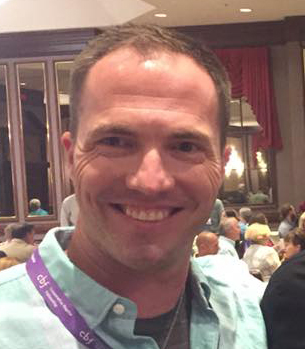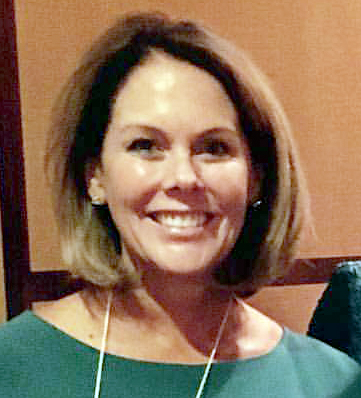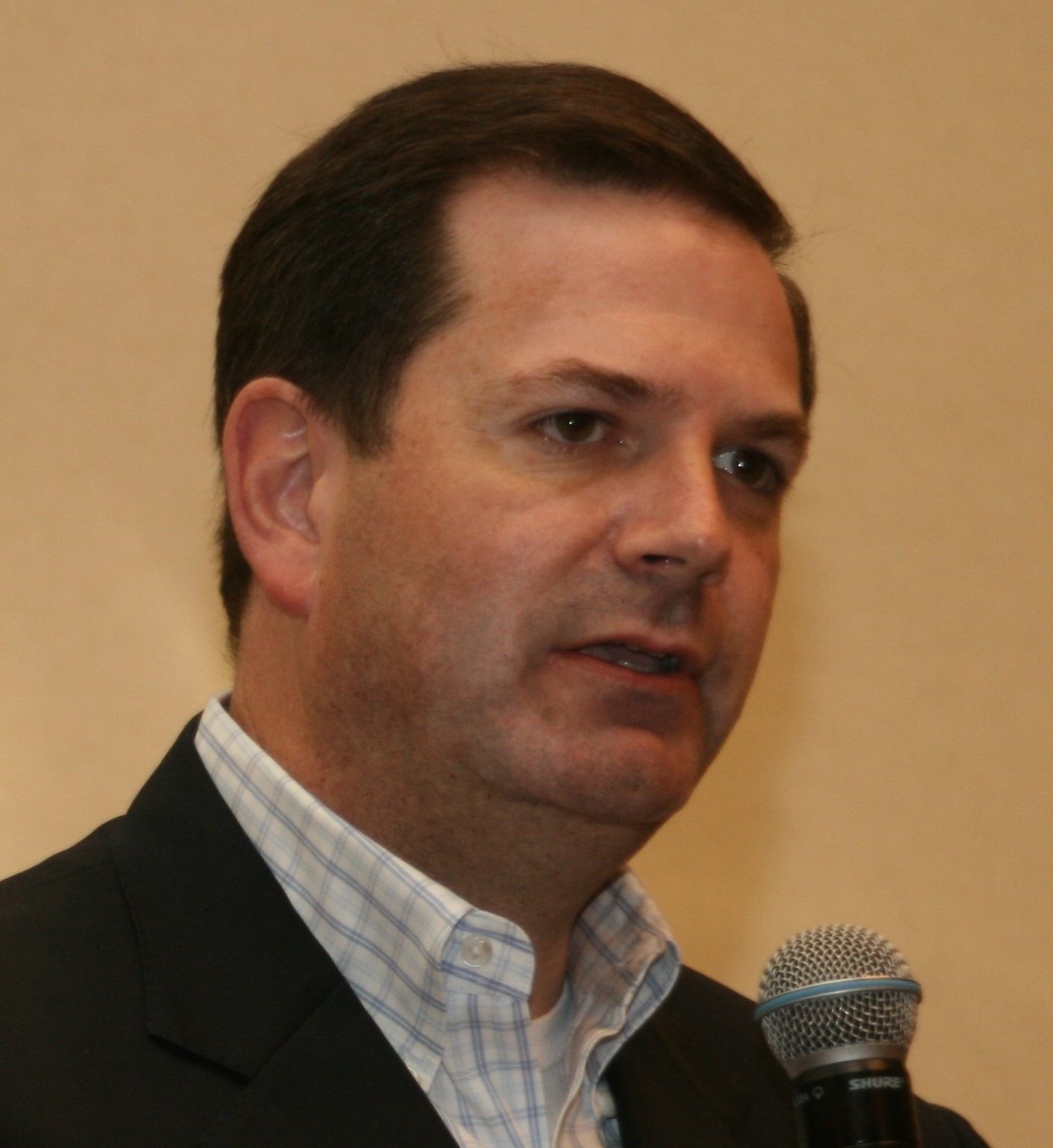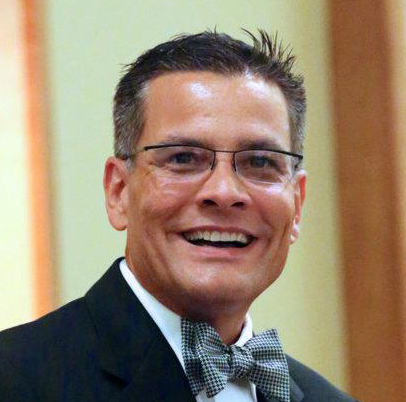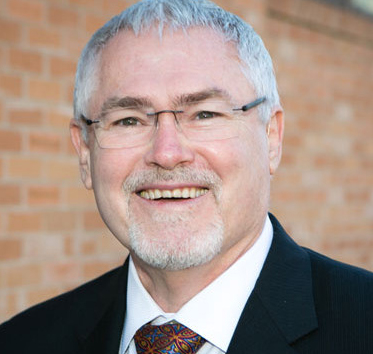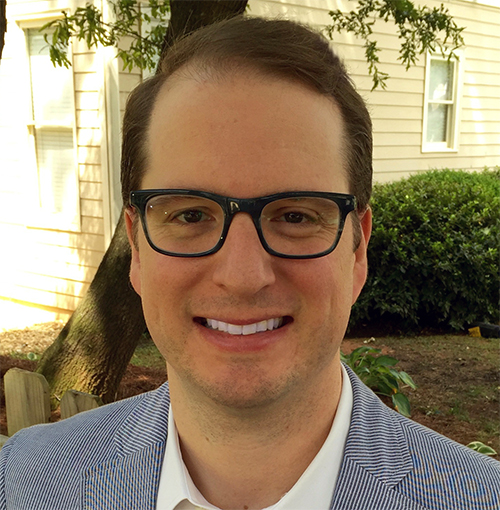Back in the days when dinosaurs ruled the earth and moderates ruled the Southern Baptist Convention, no Baptist state convention showed stronger resolve in defending historic tenets like soul freedom and autonomy of the local church than Texas.
With actions such as this week’s vote declaring churches that welcome and affirm LGBT people “out of harmonious cooperation,” some moderate and progressive Baptists are wondering openly where along the way they lost their beloved Baptist General Convention of Texas.
The Nov. 15 vote follows letters sent by convention leaders Nov. 8 informing two high-profile congregations that recently acted to become more inclusive of LGBT individuals they are no longer welcome in Texas Baptist life.
Following a 14-month discernment process, the membership of Wilshire Baptist Church in Dallas voted Nov. 13 to affirm that nothing in the congregation’s governing documents prohibits LGBT individuals — who have long been welcome as church members — from full rights of membership including service as deacons and having a church wedding.
In a letter informing church members of the outcome, Pastor George Mason said Wilshire is “not alone in taking this direction.”
“Baptist churches all over the country, many affiliated as we are with the Cooperative Baptist Fellowship, others that are former BGCT-related churches, and several local Presbyterian, Methodist, Episcopal, Lutheran and United Church of Christ churches, to name a few, have preceded us in this journey,” Mason said. “We are grateful for their partnership in witness to the gospel that is open to all and closed to none.”
First Baptist Church in Austin adopted a diversity policy in 2015 that welcomes members regardless of sexual orientation into “the full life of our community.”
“One of the things I keep saying to reporters is that my reaction is both pride in this church for being bold about who were are … in the face of power trying to silence our voice, and then a deep sadness that once again the larger church becoming narrower and narrower is again a leading story,” said Griff Martin, who was elected 24th senior pastor of First Baptist in June. “The last thing the world needs is another religious institution where everybody looks and thinks the same.”
About 1,100 messengers attending the 2016 BGCT annual meeting in Waco, Texas, passed two motions concerning the ousters. The first established a process that any future decisions to remove a congregation be handled by the state convention’s executive board. The other added guidance that “any church which affirms any sexual relationship outside the bonds of a marriage between one man and one woman be considered out of harmonious cooperation with the Baptist General Convention of Texas.”
The second motion prompted a passionate 45-minute debate. Some speakers suggested the action could mark a turning point in their church’s loyalty to a once fiercely independent state organization with uneasy ties to the Southern Baptist Convention which has long been perceived as moving toward a closer relationship with the less inclusive SBC.
“If you remove churches like Wilshire, like First Austin, … you have removed my family and me from BGCT life,” warned Jackie Baugh Moore, a lifelong Texas Baptist who serves on the board of directors of the Eula Mae and John Baugh Foundation, a charity established to carry on philanthropic support of moderate Baptist causes after her grandparents’ death.
Moore’s grandfather, John Baugh, was a founder of Baptists Committed to the Southern Baptist Convention, a political organization formed in 1988 to resist the so-called conservative resurgence in the Southern Baptist Convention.
After conservatives solidified control of the national body in the 1990s, a state chapter called Texas Baptists Committed continued to defend the BGCT, its institutions and its affiliated churches from fundamentalist takeover.
For years Texas Baptists Committed successfully mobilized thousands of messengers from churches around the state to attend BGCT annual meetings to elect moderate or centrist candidates endorsed by the organization.
After the firing of Southwestern Baptist Theological Seminary President Russell Dilday in 1994, Texas Baptists Committed leaders said publicly it might be time for the BGCT to sever formal ties with the Southern Baptist Convention.
In the end the BGCT reallocated more than $4 million from SBC seminaries to alternative theological schools in Texas, including Baylor’s George W. Truett Theological Seminary. The convention stopped sending any money to the SBC Christian Life Commission — formerly led by Texan Foy Valentine but under successor Richard Land was increasingly seen as part of the Religious Right.
The perception that the BGCT was moving away from the SBC was sufficiently strong to prompt about 600 churches to form a rival Southern Baptists of Texas Convention in 1998.
Texas Baptists Committed no longer endorses candidates for state convention offices but continues in the 21st century informing clergy and laity, assisting congregations with pastor searches, and “standing firm for historic principles unique to what it means to be called a Baptist.”
“For many years many of us fought hard for this to be a convention that included everyone,” said David Currie, who resigned as founding executive director of Texas Baptists Committed in 2009.
“The Southern Baptist Convention was about exclusion,” Currie said. “Texas Baptists Committed was never about that. It was about this convention being an inclusive convention.”
“That is the genius of Texas Baptists, and what we fought so hard to preserve.”
Steve Wells, pastor of South Main Baptist Church in Houston, warned of the danger of any decision to “make the circle smaller.”
“Look, biblical marriage counts, and we’ve not been in any way ambiguous about that, but does it rise to this level that it defines the circle of who we are?” Wells asked. “If we’re going to choose going down the road of defining the circle of who we are this year, this way, what are we going to do with it next year?”
“Are we going to decide that churches that ordain women to their diaconate are out, or churches who have deacons who drink are out, or churches that marry couples that cohabitated before marriage are out? If this is our plan, look at the person next to you and decide if you like them, because soon enough it’s just going to be the two of you in the room.”
The BGCT first adopted a statement in 1982 saying “the homosexual lifestyle is not normal or acceptable in God’s sight and is indeed called sin.” Texas Baptists reaffirmed that view in 1996, 2005 and 2009.
BGCT Executive Director David Hardage went on record earlier this year to say that despite the legalization of same-sex marriage and growing acceptance of homosexuality in culture, the convention’s historical stand that any sex outside of marriage between a woman and a man is sinful has not changed.
“It saddens me that this may be my last convention, not because I or my church chooses to leave, but because you choose to not be in fellowship with me because I have interpreted the Scripture the way I feel like God has sent it to me, and because my church has chosen to make their own decision.”
One-in-five U.S. adults say their views on homosexuality have changed over the past few years, and most say they have become more accepting.
More than half of Americans now say they favor allowing gays and lesbians to legally wed, a reversal from a decade ago when 55 percent opposed and 35 percent favored same-sex marriage. Among people under 30, three fourths (73 percent) believe in marriage equality.
White evangelical Protestants are far more likely to oppose than to favor same-sex marriage — by a margin of 68 percent to 27 percent — but younger church members tend to be more accepting than their older counterparts.
Half (51 percent) of evangelical Protestants in the Millennial generation born between 1981 and 1996 say homosexuality should be accepted by society, compared with a third of evangelical Baby Boomers and a fifth of evangelicals born prior to 1945.
Even within the Southern Baptist Convention, one of the most vocal faith groups in defending the traditional view of marriage, acceptance of homosexuality increased from 23 percent to 30 percent over the course of seven years.
Martin, an Austin native and Truett Seminary graduate who before assuming the pulpit at First Baptist Church in July served as senior co-pastor of University Baptist Church in Baton Rouge, La., viewed the shift in thinking as the latest example of “an issue that the church is the last to formally address.”
“I think in the last six years what has changed is culture’s celebration of the LGBTQ community and as culture has evolved and progressed the church has finally caught on,” Martin said. “Once again the church was not the agent of change but waited around until change felt safe.”
“Additionally I believe that people have finally learned to listen to their LGBTQ friends and family and their stories have changed our hearts,” Martin said. “For me it was one of my best friends who came out and the next Sunday was denied communion, and I vowed then that my ministry would always be about enlarging the table and kingdom.”
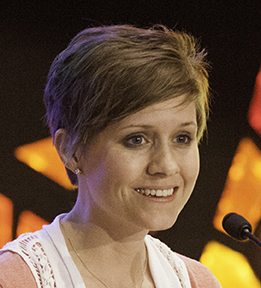 Kyndall Rothaus, senior pastor of Lake Shore Baptist Church in Waco, Texas, said if Texas Baptists want to get tough on sexual sin, they should start with the “assault epidemic in our country.”
Kyndall Rothaus, senior pastor of Lake Shore Baptist Church in Waco, Texas, said if Texas Baptists want to get tough on sexual sin, they should start with the “assault epidemic in our country.”
“The primary sexual sin of our time is assault,” Rothaus said in a Facebook video. “Assault is absolutely contrary to all our Christian values.”
“While children are molested, girls are raped on college campuses, and men and women attend churches where they seldom if ever hear about rape from a pulpit, we squabble about the sexual choices of consenting, responsible adults,” Rothaus said. “If the enemy were trying to distract us from protecting our children, he has succeeded magnificently.”
Others attributed passion surrounding this year’s debate to a growing perception that the Baptist General Convention of Texas leadership has been moving away from — or at least wavering in — its strong commitment to principles like soul liberty and autonomy of the local church that distinguished the state convention from the dominant voices in the Southern Baptist Convention in the 1980s and 1990s.
Woodland Baptist Church in San Antonio, Texas, voted Nov. 8 to re-allocate $15,000 for the BGCT in the 2017 budget to other missional endeavors. While the current action against Wilshire and First Baptist, Austin, precipitated the move, Woodland Pastor Garrett Vickery said people in the church have been concerned over the past few years that the BGCT has cut funding to many institutions they cherish.
“The BGCT is at an awkward stage where it is trying to navigate its place in the denominational world as an independent state entity,” Vickery said in a letter announcing the vote to church members. “It seems to be choosing to move to closer ties with Southern Baptist churches. This move has been clear in that it appears to be moving away from some of its ties to Cooperative Baptist churches.”
The SBC bans from membership churches “which act to affirm, approve, or endorse homosexual behavior.” In recent years that has been applied to churches that even question the traditional view that all same-sex relationships are inherently sinful.
The Cooperative Baptist Fellowship, formed in 1991, leaves such decisions up to each local congregation, though as an organization the CBF has a policy against hiring openly non-celibate gays.
Moore, a Woodland member, said “the current leadership of the BGCT has chosen to turn away from the extensive support of the very Texas Baptists that have identified with and ministered with them and their partner institutions through many years.”
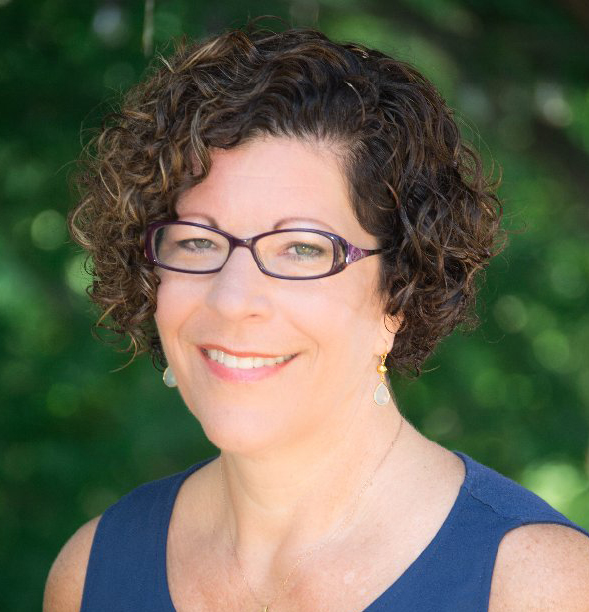 Cheryl Kimble, pastor of Highland Park Baptist Church in Austin, said she and her husband attend the convention every year, regardless of where in the state it gathers.
Cheryl Kimble, pastor of Highland Park Baptist Church in Austin, said she and her husband attend the convention every year, regardless of where in the state it gathers.
“It saddens me that this may be my last convention, not because I or my church chooses to leave, but because you choose to not be in fellowship with me because I have interpreted the Scripture the way I feel like God has sent it to me, and because my church has chosen to make their own decision,” Kimble said.
Routhas — whose church has ordained women as deacons since 1975 and became one of the first Texas Baptist churches to call a woman as pastor in 2002 — said she considers 2016 “a stake in the ground” for the BGCT. “The convention has redefined local church autonomy and left many congregations deeply wounded,” she said.
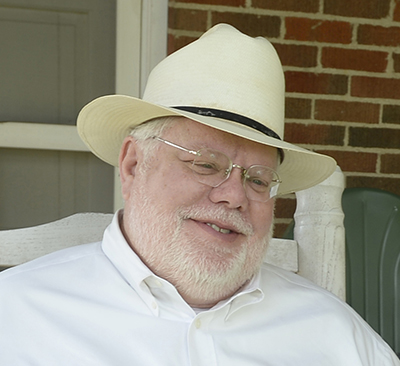 Kyle Childress, longtime pastor of Austin Heights Baptist Church in Nacogdoches, Texas, said for him and his congregation 2016 “is not so much a turning point as it is an exclamation point — a clear sign and desperate grasping by an increasingly irrelevant BGCT, not in relation to our contemporary world but irrelevance to the gospel of Christ.”
Kyle Childress, longtime pastor of Austin Heights Baptist Church in Nacogdoches, Texas, said for him and his congregation 2016 “is not so much a turning point as it is an exclamation point — a clear sign and desperate grasping by an increasingly irrelevant BGCT, not in relation to our contemporary world but irrelevance to the gospel of Christ.”
“Jesus never said a word about homosexuality and not much about sex at all, but he had plenty to say about good news to the poor, release to the captives, recovery of sight to the blind and liberation of the oppressed,” Childress said. “The BGCT seems to be obsessed with sex while paying too little attention to Jesus’ clearly stated mission.”
Mitch Randall, pastor of Northaven Church in Norman, Okla. — a CBF congregation started in 2004 that chose to identify with the BGCT instead of the Baptist General Convention of Oklahoma — said the BGCT abandoned his congregation by adopting “a small tent approach to the Christian faith.”
“At NorthHaven Church we honor the priesthood of every believer and celebrate local church autonomy, therefore establishing and practicing a big tent approach to Christianity,” Randall said in a blog Nov. 16.
“We have members on both sides of this issue, but we have chosen to cherish freedom above conformity. Our LGBTQ members are granted the same rights as every other member, therefore fully affirming them as brothers and sisters in Christ. We are certainly saddened by the BGCT’s decision, but many of us have been here before when the Southern Baptist Convention excluded us as we stood up for freedom.”
Brent McDougal, one-time coordinator of the Alabama Cooperative Baptist Fellowship and now pastor of Cliff Temple Baptist Church in Dallas, said he isn’t convinced the BGCT is turning its back on moderates, because CBF churches are well represented in leadership roles, but he would like to see “some creative and courageous leadership to keep churches at the table who may hold a different view toward issues of sexuality.”
“We’ve had too much division, too much cutoff of relationship,” McDougal said. “We’ll see if 2016 is a turning point, for better or for worse.”
Leslie Hollon, senior pastor of Trinity Baptist Church in San Antonio, Texas, said the BGCT has “entered a treacherous stretch into our future” with a shrinking tent not only in terms of membership “but more importantly of how fewer seekers will now listen to us beyond the stereotype of who they think we.”
Wilshire and First Baptist, Austin, aren’t the first churches to be kicked out of the BGCT over homosexuality.
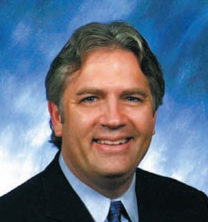 In 1998 the BGCT executive board withdrew fellowship from University Baptist Church in Austin after the church ordained a gay deacon. University Baptist Pastor Larry Bethune said Nov. 16 that church members “grieve the decision of Texas Baptists again to abandon our historic commitment to the autonomy of local churches to discern the leadership of the Spirit over one matter of biblical interpretation.”
In 1998 the BGCT executive board withdrew fellowship from University Baptist Church in Austin after the church ordained a gay deacon. University Baptist Pastor Larry Bethune said Nov. 16 that church members “grieve the decision of Texas Baptists again to abandon our historic commitment to the autonomy of local churches to discern the leadership of the Spirit over one matter of biblical interpretation.”
“We grieve more the damaging message of rejection and condemnation to LGBTQ Christians and their families in the name of Christ whose gospel welcomes all. We hope in time Texas Baptists will listen to Christ’s voice in the Spirit that lives in LGBTQ Christians and their straight allies, and see what we have experienced at UBC: God’s love leaves no one out!”
In 2010 BGCT leaders disfellowshipped Royal Lane Baptist Church in Dallas, finding the ordination of openly gay deacons placed the church “outside the BGCT understanding of biblical and historic views on sexual ethics.”
Royal Lane Pastor Mike Gregg said the action against Wilshire and First Baptist, Austin, has prompted “an intense time of remembering” for longtime church members, but in retrospect those who were around six years ago say they “were never prouder to call Royal Lane home.”
“I can’t think of a better thing for a church to do than to tell the truth about who they are and what they value,” said Gregg, who moved to Royal Lane this summer after serving as associate pastor at Northside Drive Baptist Church in Atlanta. “So, although some of the pain of leaving the BGCT has produced scars that are still with us at Royal Lane, through those wounds we have gained many wonderful members and have been pioneers down a path that other churches are now free to follow.”
Moore, a member of the Baptist News Global board of directors, said she was disappointed by the BGCT vote but looks forward to turning attention to building a higher profile for the Cooperative Baptist Fellowship of Texas.
“CBF Texas was intentionally weak so as not to compete with BGCT,” Moore said. “Well, no more! George Mason and others are in great position to help us get this party going.”
Rick McClatchey, field coordinator of CBF Texas, said diversity is a hallmark of the regional affiliate of the 1,800-church Fellowship headquartered in Atlanta.
“The Cooperative Baptist Fellowship of Texas is a partner in ministry and mission with diverse congregations across Texas for impact in our state and around the world,” McClatchey said. “It is our goal to help network diverse people and churches to spread the hope of Christ. That is our goal, and we appreciate all willing partners to that end.”
Previous story:




